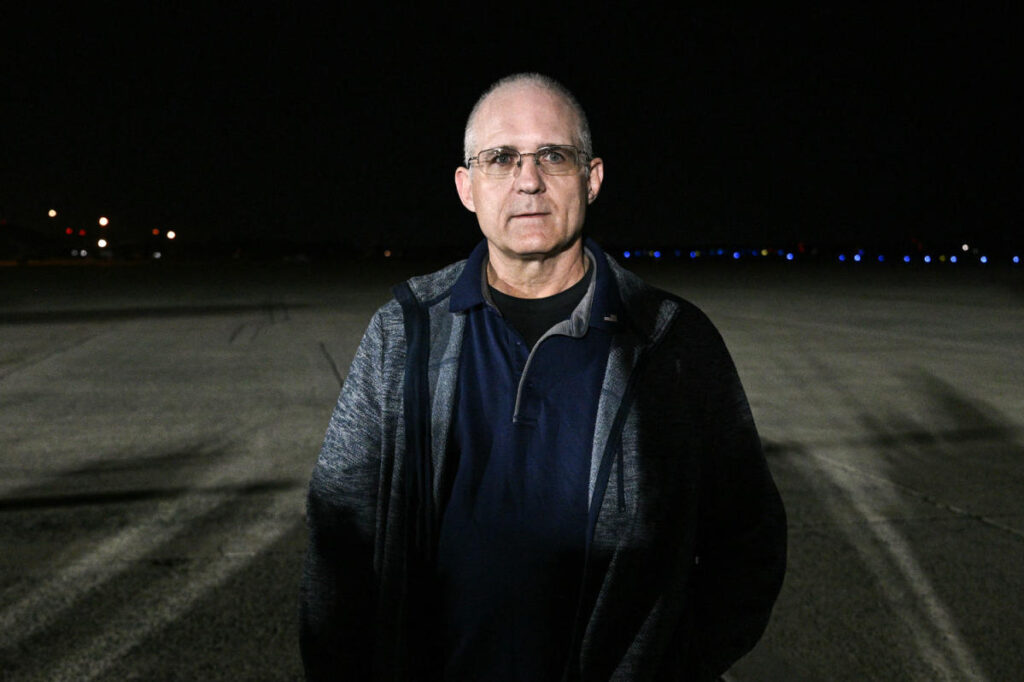In his first interview since returning to the United States, former Marine Paul Whelan shared his deep sense of devastation upon learning from a Biden administration official that WNBA star Brittney Griner was being released from Russian detention, but he was not. Whelan, who had endured more than five years of imprisonment in Russia on espionage charges he firmly denies, was informed that the U.S. had secured Griner’s release by trading convicted arms dealer Viktor Bout. He felt that this marked a diminishing of the United States’ negotiating power. Whelan expressed his immediate concern about what would come next for him, indicating his desire to maintain hope despite the difficult news.
Whelan’s experience in Russian custody began in 2018 when he was arrested at a hotel in Moscow and subsequently tried and sentenced to 16 years of forced labor based on dubious espionage charges. He believed initially that his arrest was a joke and soon realized the gravity of his situation as he was taken to Lefortovo prison. During his five years of imprisonment, he was put through significant psychological strain, including constant suggestions from the FSB agents to confess to crimes he did not commit, as well as enduring harsh living conditions characterized by meager rations and no physical abuse, although he encountered widespread corruption among prison guards.
Despite these hardships, Whelan managed to keep his spirits alive by engaging in a personal ritual of chanting “The Star-Spangled Banner” daily. His resolve was largely motivated by a desire to reassure his family and maintain hope for future release, even though he was left behind when another former Marine, Trevor Reed, was part of a prisoner swap. The emotional toll of his imprisonment was compounded by personal losses, notably when he learned of the death of his dog, Flora, which was a critical moment in his psychological struggle.
Whelan’s release was finalized in August during one of the largest prisoner swaps since the Cold War, which also freed several journalists. His lengthy detention highlighted the complexities of international diplomacy relating to rogue states such as Russia, and he noted that strong leadership is necessary to navigate these challenges. Amid rising tensions with Russia, Whelan underscored the need for a robust approach to diplomacy and expressed skepticism regarding claims made by former President Donald Trump about improving prisoner negotiations with Putin if he were re-elected.
Reflecting on his ordeal, Whelan mentioned troubling events he learned of while imprisoned, including opposition leader Alexei Navalny’s death, which heightened fears surrounding Russian government actions. Throughout his incarceration, Whelan remained resolute in his determination not to succumb to despair, stating that his fight against the unjust situation he faced was a crucial part of his mental resilience. The culmination of his distress came when he suffered an illness he believed was Covid-19 but persisted in striving for survival, rejecting any thoughts of suicide.
In July, he recognized a potential shift in his situation when approached by FSB agents regarding a pardon. After being transferred to a solitary confinement cell in Moscow, he was finally able to board a plane bound for Turkey, where he was reunited with fellow detainee Evan Gershkovich. Once onboard, he felt a rush of hope as CIA agents welcomed him. Whelan’s first moments back on U.S. soil were significant; he was personally greeted by President Biden, who pinned a flag on him—an act that deeply resonated with him. Despite his traumatic experience, he is now dealing with the challenges of reintegrating into society, facing personal health issues, and contemplating his future career prospects, all while trying to adapt back into normal life after such a profound ordeal.

